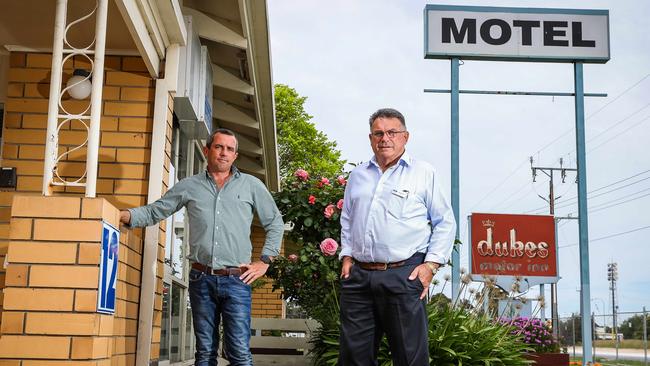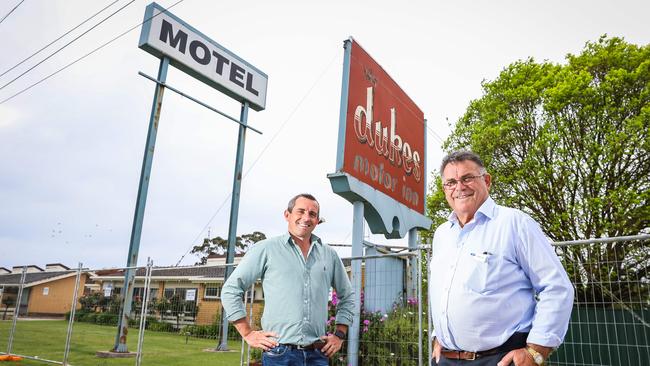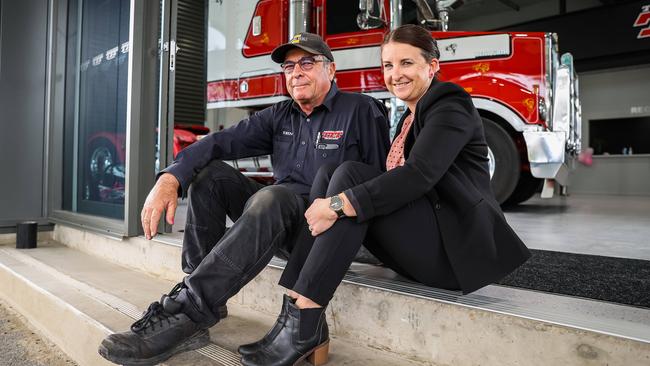Billions of dollars of investment at risk in South Australia’s regional towns because of crippling housing shortage, federal inquiry hears
SA has a billion-dollar problem, caused by under-investment and worsened by Covid. And some employers are going to extremes for a fix.
SA News
Don't miss out on the headlines from SA News. Followed categories will be added to My News.
A housing supply crisis engulfing regional South Australia is threatening billions of dollars worth of investment, the state’s peak council lobby warns, as a major employer takes a “desperate” step to accommodate workers.
Housing shortages in country SA have worsened during Covid, with a “tree change” attracting more people to regional areas, driving up house prices and tightening supply, the Local Government Association of SA has told a federal parliamentary inquiry into housing affordability.
The crisis has led one employer – Australia’s largest meat processor, JBS Foods Australia – to buy a $1.85m motel in Bordertown to house new employees.
Another employer is about to install a transportable house for three technicians to live in – see below.
In a submission, the LGA has told the inquiry that under-investment in new housing, houses being converted to Airbnb, a historic absence of affordable housing and a Covid stimulus-induced shortage of trades in regional areas had contributed to “long-term deficiency” in rural housing.
The LGA cites research by Regional Development South Australia (RDSA) that $31bn worth of investment in regional SA over the next five years “may not eventuate” if regional housing shortages are not fixed.
Some towns have no available rental properties.
The RDSA research, published in June, stated that if just 20 per cent of the anticipated $31bn was realised, that would equate to 24,960 jobs.

To help combat the shortage, JBS Foods Australia has paid $1.85m for the 34-room Dukes Motel in Bordertown, which will be converted into workers’ accommodation.
The company said attracting and keeping people was critical for local jobs.
“The motel will accommodate new JBS employees to Bordertown, including people arriving over coming weeks as part of the federal government’s Pacific labour scheme,” JBS Bordertown plant manager Trevor Schiller said. “It’s critical for our operations and to maximise throughput at our plant.”
Mr Schiller said the JBS Bordertown facility was processing 5800 animals a day and would look to ramp up production to 6500 lambs a day.
The housing inquiry has heard a “critical housing shortage” was threatening the economic prosperity of the Tatiara district in the state’s South-East.
Tatiara Mayor Graham Excell said JBS’ motel purchase underlined how “desperate” the company was to expand production.

“We can’t get developers to build houses in the area because there is only one big employer,” he said.
“It’s very difficult to get people when you can’t house them.”
He said there was no incentive for developers to build in the township because there was no capital growth.
He said Tatiara’s unemployment rate was at 2.6 per cent and the region’s strong economy was stretching trades.
“If you want to build a house in Bordertown and use a local builder to build it, you’ll wait three years,” he said.
There were 1720 advertised vacancies in regional SA, according to the latest Federal National Skills Commission data, up 70 per cent since March 2020 when Covid struck.
The RDSA said “many employers have simply given up trying to employ workers”.
With the LGA, it is calling for:
ALTERNATIVE funding models to drive housing investment in regions
CONSIDERATION of tax exemptions for developers who build in regional SA
AN audit of housing supply and demand in the regions to guide potential investment
REFORMING migration programs to get more workers to the regions, and
INCREASING employment readiness pathways.

Driving a solution
John Jenkin said he could have kept complaining about Bordertown’s housing shortage or take action – he chose the latter.
The owner of Tatiara Truck and Trailers has bought a block of land for a transportable house to house three Filipino technicians in the next six months.
“We’re a business and we want people working for us and if we want people to work for us that’s what we’ve got to do,” he said.
“I keep seeing people whingeing but you can’t whinge forever, you’ve go to stand up and do something yourself.”
Mr Jenkin said the housing shortage wasn’t the only problem facing his Bordertown truck repair business, which employs 55 staff. They are also suffering from a shortage of workers.
“We advertise all the time but trying to get (workers) out of the city is an issue cause they reckon there’s nothing out here, but they’ve probably never driven past Murray Bridge in their whole life,” he said.
He said his growing, family-owned company has recently spent $2.5m on a business expansion.
“We’ve got loads of work but nobody to do it,” he said.





